Trauma can be as long-lasting as an entire lifetime. The incurable after-effects are agonizing, stressful, and pertain to a great ordeal. As for the person dealing with trauma, their family and friends also get involved, and all lives akin to the primary person change.
This change is, more often than not, subtle and might go unnoticed. Overall, the person dealing with trauma seems “normal”, but the effects impact relationships, moods, and will to function.
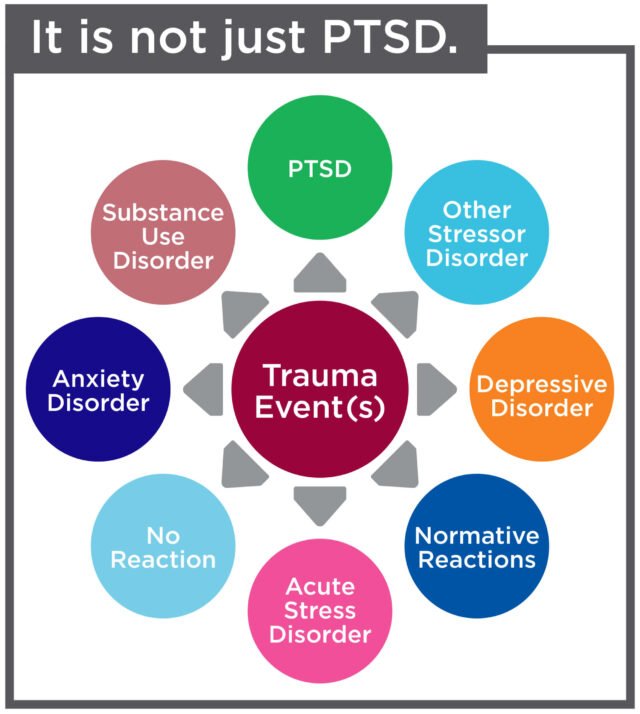
At times, the after-effects of surviving a trauma are relentless, and thus, the right time to go for trauma support and treatment is the key.
Reaction To Trauma
Now, the way people react to a traumatic event varies as per variation in their background and personality. To put it simply, at times, you might think of a traumatic event as “minor”, but for another person, it might feel like the end of the world.
No one has the right to undermine another’s emotions. Nor do they have the license to question its authenticity or degree.
That being said, a term called “complex trauma” generally results in severe to fatal after-effects. Herein, unlike the conventional trauma, those incidents keep repeating themselves and thus, constant jibes become the norm concerning traumas.
Common examples of complex trauma include domestic violence, addiction, poverty, chronic illness, or ongoing community violence.
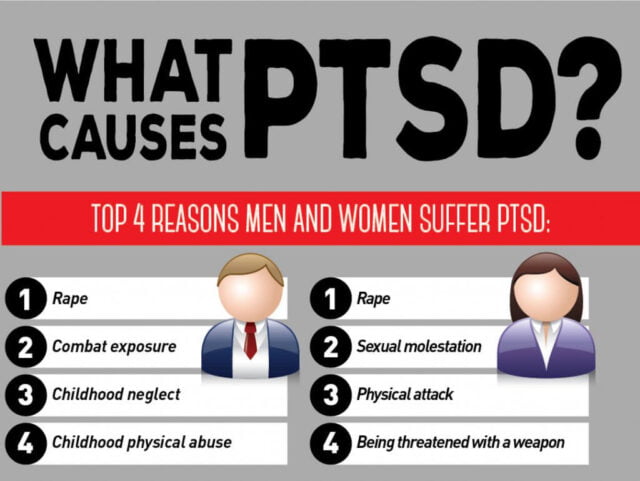
No matter the type, trauma is bound to impact relationships. Whether romantic or platonic, none remains unscathed.
Read More: What Is ‘Traumacore’: A New Aesthetic Followed By Millennials
Here’s a list of red flags for you to acknowledge the unsuspecting trauma you might be going through. If you, at any instance, feel that you’re traumatized by an event, however minor it may seem right now, go and consult a professional.
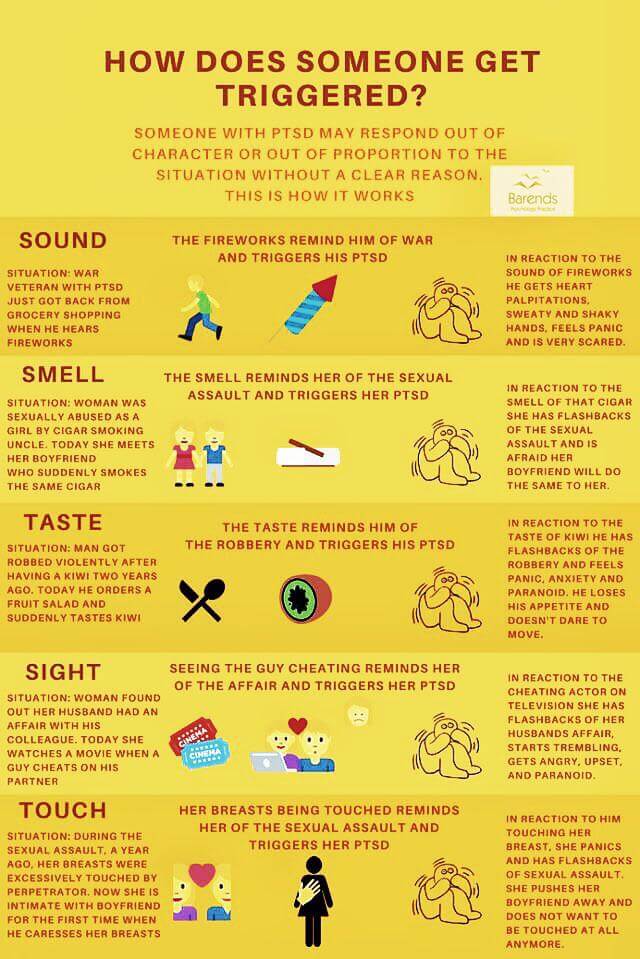
Self-diagnosis does more harm than good. The following list is just for you to refer to the symptoms commonly observed in a trauma survivor whose life may be getting affected in magnitude.
- Irritation or chronic anger
- Anxiety
- Insomnia or difficulty in sleeping
- Agitation, impatience, or an inability to sit still
- Invasive memories, nightmares, or flashbacks
- An “out of body” feeling or detachment from others
- “Shutting down” or being unable to accomplish goals; unproductive at a length
- Struggling with depression or chronic unhappiness
- Change in appetite; unable to eat
- Getting disturbed when things aren’t a “certain way”
- Repeating activities over and over
- Difficulty concentrating
- Engaging in risky or dangerous behaviors
- Wanting to hurt yourself or others near you
- Difficulty trusting others
- Feeling unsafe at all times
- Abusing drugs, alcohol, or behaviors to numb yourself
- Deliberately avoiding friends, loved ones, or things you used to enjoy
Childhood Trauma
Moving on, let’s look at how childhood trauma affects relationships. It is no surprise that almost every third person experiences trauma before the age of 18. The early family environment becomes one of the most crucial pillars of adult relationships.
Children are naive beings, ready to step into the world of adulthood with the knowledge gathered from the experiences of the adults around them since they are too young to have experienced enough for themselves.
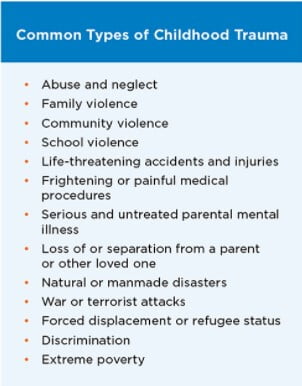
And thus, the sense of security, belonging, love, and affection gets questioned based on the experiences those adults share.
Particular attachment styles get absorbed by children, who then go on to reflect the extent of attachment, or shared emotions, these children feel comfortable in once they become adults themselves.
But as adults, personal insight, counseling, and support help us create our styles. As for the types of attachments, one can have Secure attachment, Dismissive-avoidant attachment, Fearful-avoidant attachment, Anxious-preoccupied attachment, or any other kind.
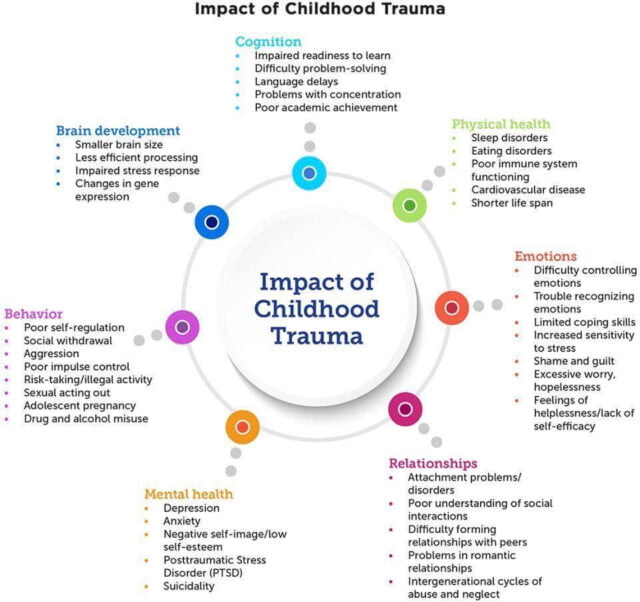
After all, trauma gets reflected in the personalities and behaviors of the survivors.
Adulthood Trauma
That being said, in case we were to talk about the trauma incurred during adulthood itself, intimate partners, spouses, and family members become the leading witnesses to the after-effects and severity of the trauma.
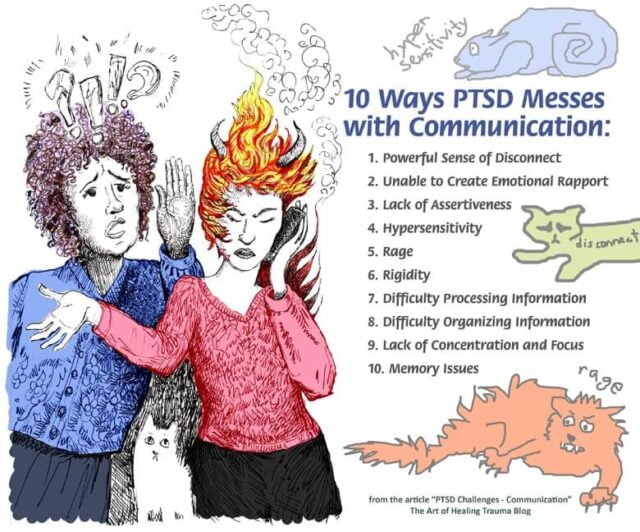
There is, of course, the possibility of a couple going through shared trauma together as well. It all boils down to the coping mechanism a person holds on to.
Why Do Relationships Change After Trauma?
As to whether PTSD can ruin or improve relationships, it also depends on the coping skills to an extent. On the brighter side, family, and friends that are aware of the trauma and the methods to deal with it, mainly after counseling, not only understand the ordeal but also grow closer to the survivor.
Image Source: Google Images
Sources: Medical News Today, Bridges To Recovery, Casa Palmera
Find The Blogger: @evidenceofmine
This post is tagged under: PTSD, relationships, lives, life, trauma, syndrome, disorder, effects, stress, family, friends, person, normal, mood, survivor, treatment, support, trauma center, reaction, personality, minor trauma, major trauma, emotions, feelings, complex trauma, jibe, examples, domestic violence, addiction, poverty, chronic illness, community violence, romantic, platonic, red flags, traumatic event, traumatized, professional, psychologist, diagnosis, self-diagnosis, symptoms, trauma survivor, anger, irritation, anxiety, insomnia, impatience, agitation, invasive memory, nightmare, flashback, detachment, out of body experience, shut down, unproductive, depression, unhappiness, appetite, ADHD, OCD, danger, risk, hurt, self-harm, harm, trust, unsafe, safety, drugs, alcohol, behavior, childhood trauma, adulthood trauma, early family environment, experience, knowledge, security, love, belonging, affection, young, youngsters, attachment styles, reflection, self-reflection, shared emotions, personal insight, counseling, support, secure attachment, dismissive avoidant attachment, fearful avoidant attachment, anxious preoccupied attachment, intimate partners, spouses, family members, shared trauma, coping mechanism
































